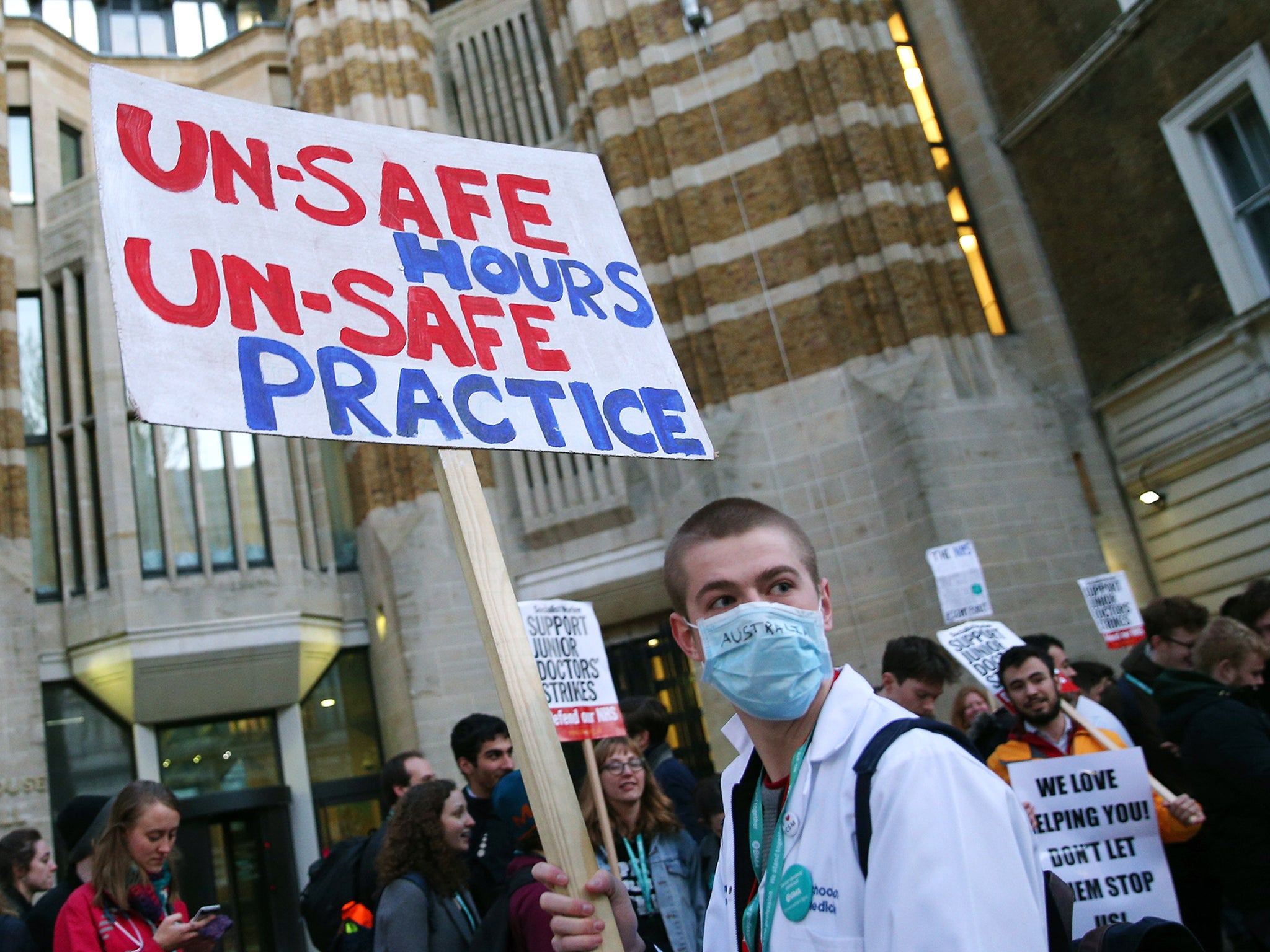You can get onto a medicine degree through clearing because nobody wants to be a junior doctor – and I know why
A few years ago, leaving the NHS would have been unthinkable. Now, every day at work, I feel less and less helpful and I have become disillusioned

I have only ever wanted to be a doctor. I made my career choice at four years old after watching my father at work; a consultant in the NHS, he was my role model.
Doctoring is a vocation, and the decision to enter the profession is never taken lightly. It takes years of dedication to get there. Careers advice at secondary school reminded me that medical school is one of the most competitive degree courses to get into, requiring high grades at A Level, commitment and determination. Getting in through clearing, if things hadn’t quite gone to plan, was impossible.
That is, until now. Last week it was revealed that, for the first time ever, one of the most prestigious medical schools in the country is offering up to 50 places to study medicine through clearing. Though that may be welcome for some individuals fighting for scarce university places, it sends a terrible message about medicine as a career: demand for places is dropping and the profession is losing its prestige.
Applications to medical school have fallen by 13.5 per cent in the last two years, with negative publicity about the NHS being blamed as part of the reason together with the rising cost of university education (the average medical student can expect to rack up a debt of £70,000 by the end of their studies). But the government reassured us that this recruitment crisis was not real. Now, with St George’s offering places in clearing, we know for certain that it is.
The NHS is under enormous strain. It is missing key targets in A&E waiting times, waiting lists for elective operations are increasing, cancer treatment targets are being missed and, because of the mismatch between the health and social care, sector we can’t get patients home from hospital creating “bed blocking” (an ugly term for an ugly situation). Yet, the one thing that always sustained the NHS was its goodwill, and the staff on the frontline.
Now, even this is even changing. Nursing bursaries have been cut threatening the number of nurses that will be on the wards in the future. And the prolonged and bitter junior doctor dispute led to doctors taking industrial action for the first time in more than four decades. There is also a retention crisis: junior doctors are leaving the NHS in droves. Professor Neena Modi, President of the Royal College of Paediatrics and Child Health has said that nine in 10 paedatric units are understaffed and, in the past six months alone, more paediatric junior doctors have resigned than in the past five years.
When I first qualified as a doctor, nine years ago, I was deeply proud that I had achieved my dream. I thought that medical school finals were the hardest thing I had ever done – but then I started work as a junior doctor. My legs ached like they've never ached before. I remember my partner at the time asking me if I would ever be able to do any housework or cook or do anything ever again. I felt broken. But things did change: the solidarity of the staff, the patients and the fact that I believed I was making a small difference, fuelled me.
Today, those on the frontline of the health service are working with shrinking resources as the government continues to underfund the NHS with less than 6.5 per cent of GDP being spent on healthcare – much less than our European counterparts. Morale is being destroyed.
A few years ago, leaving the NHS would have been unthinkable for me. Now, every day at work, I feel less and less helpful. I have become more and more disillusioned with the NHS.
If I am today’s role model for budding junior doctors, no wonder there aren’t enough applicants for medicine. And if universities cannot be discriminating in who they admit to study medicine, the calibre and ability of our young doctors will suffer – and that’s very dangerous for the future of the health service.
As it stands, we still have a world class healthcare system with some of the best doctors and surgeons in the country. But if medicine becomes a clearing course it will be a very different situation in 10 years’ time. There is a very real possibility of a brain drain as highly talented young people are turned off medicine. Is Theresa May really willing to stand back and let that happen?


Join our commenting forum
Join thought-provoking conversations, follow other Independent readers and see their replies